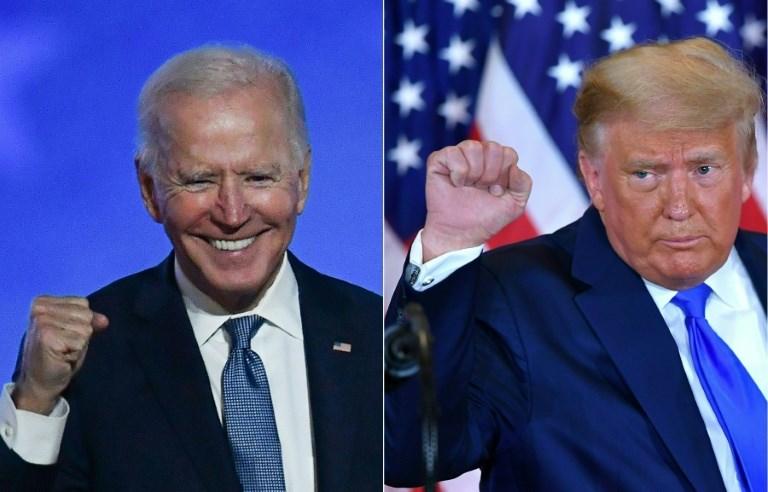Well that was disheartening.
I know, I know...all the votes haven’t been counted, and, in fact, by the time you read this, Joe Biden may indeed be America’s president-elect. Still, I’m not feeling great.
Like many, I was hoping to see a clear and decisive repudiation of the Donald Trump presidency. The fact Tuesday night and all day Wednesday was a nail-biter is astonishing to me.
At one point I had to yell at the TV, “Why are we even having this conversation? Why is this even up for debate?” (You know you’re feeling helpless when you’re yelling at the television.)
Well, Trump’s fitness for office clearly is up for debate. In fact, his showing is stark proof that he still commands a significant chunk of the American electorate — and not just his hat-wearing, mask-less base.
Granted, this was not our election, but borders are porous...and not just physically. The attitudes of our neighbours, who also happen to be the most powerful nation in the world, can’t help but impact us.
In other words, we need to get some perspective on why we’re having this conversation and why this is even up for debate. I remember a councillor once saying, “Don’t get mad, get curious.”
So let’s try it, but before I go there...
It so happens I’m giving a talk in a couple of weeks as part of Kwantlen University’s Third Age Learning at Kwantlen (TALK) program. It’s a free program for seniors that features lectures on everything from astronomy, to opera, to immigration policies.
I’ve been asked to talk about freedom of the press. For it, I plan to provide some historical context and look at a couple of the early proponents — and I mean early.
In 1644, the English philosopher, poet and intellect, John Milton, wrote Areopagitica, wherein he lays out the argument for why people should be allowed free expression.
He talks about how all ideas, good and bad, should be aired so they can compete in the “free market of ideas.” Through that rigourous exchange, the best ideas emerge and society will be rewarded.
John Mills picked up on this theme about 200 years later in his book On Liberty, where he says not only should bad ideas be exposed, since they’ll run underground anyway, but good ideas also need to be examined and re-examined otherwise they just turn into dogma.
What this has to do with the current American election is the fact all these centuries later, and in a society where people are free to post and tweet just about anything, we are more isolated and more siloed than ever, or at least more than I ever remember.
I have Trump-supporting family members in the U.S. whose way of thinking I find completely unfathomable.
Despite our familial connection, when it comes to politics, they are alien to me — alien to the point, any discussion about politics among some of us has become a complete no-go zone.
So, were those earlier thinkers overly confident in our capacity to engage in reasoned debate as long as we were allowed free expression?
I don’t think so, but I do think it is too simplistic to argue freedom from government legislation would be enough to secure it.
Free expression and the notion of a free marketplace of ideas is a worthy goal, but like all “free markets,” it begs the question, free for who?
In the 1950s, a journalist wrote, “Freedom of the press is afforded to those who own one.” Today’s press barons are the Mark Zuckerbergs (Facebook) and Jack Dorseys (Twitter) of the world and their agenda (like press barons old and new) is to maximize profit.
It appears, this is best done by sowing discord and creating filter bubbles. In other words, the very platforms that were heralded as the great equalizers giving everyone a voice are, too often, undermining any sense of a shared reality. And without that, how do we even start the conversation?
I’m not saying social media is to blame for all the ills of the world, or even the American election, but it’s clear the freedom to tweet has nothing to do with the ideals of a free press.



